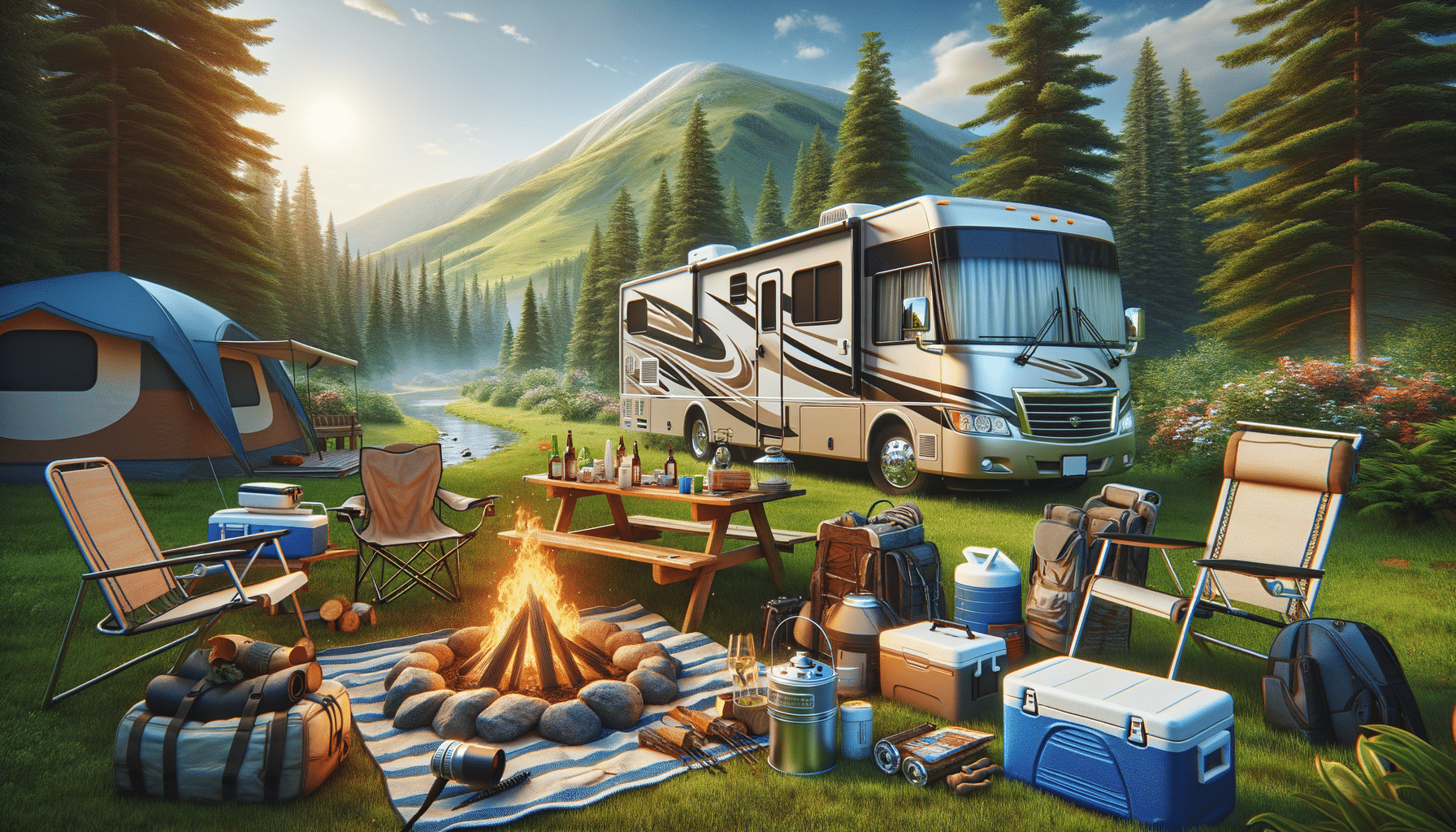
The Essential Guide for Campers & RVs – Learn More Now!
Understanding Different Types of Campers
Campers come in a variety of shapes and sizes, each designed to cater to different needs and preferences. Understanding these different types is crucial for selecting the right camper for your adventures. From compact pop-up campers to luxurious motorhomes, the options are vast and varied.
Pop-up campers, also known as tent trailers, are among the most popular choices for beginners. They are lightweight, easy to tow, and can be stored in a garage when not in use. Despite their compact size, they offer a surprising amount of space when set up, making them ideal for families and small groups.
Travel trailers offer a bit more space and luxury compared to pop-up campers. They range from small, single-axle models to large, multi-axle trailers that can accommodate several people comfortably. These campers often come equipped with kitchens, bathrooms, and entertainment systems, providing a home-like experience on the road.
For those seeking the pinnacle of luxury, motorhomes provide an all-in-one solution. These vehicles combine transportation and accommodation, offering the ultimate in convenience and comfort. Motorhomes come in various classes, from Class A, which are the largest and most luxurious, to Class C, which are smaller and more economical.
Key Features to Consider When Choosing a Camper
Choosing the right camper involves considering various features that will impact your travel experience. From size and weight to amenities and durability, each aspect plays a critical role in ensuring a comfortable and enjoyable journey.
Size is one of the most important factors to consider. The size of your camper will determine how many people it can comfortably accommodate and how much storage space is available. It’s essential to choose a camper that suits your travel group’s size and needs.
Weight is another crucial factor, especially if you plan to tow your camper with a vehicle. Ensure that your vehicle can safely tow the camper’s weight, including all of your gear and supplies. Overloading can lead to dangerous driving conditions and damage to your vehicle.
Amenities such as kitchens, bathrooms, and sleeping arrangements are vital for a comfortable camping experience. Consider what amenities are essential for your needs and prioritize them when selecting a camper.
The Benefits of Owning a Camper
Owning a camper offers numerous benefits that can enhance your travel experiences. From the freedom to explore remote locations to the convenience of having your own space on the road, campers provide a unique blend of adventure and comfort.
One of the most significant advantages of owning a camper is the freedom it provides. With a camper, you’re not tied to hotel reservations or specific travel itineraries. You can explore off-the-beaten-path destinations and change your plans on a whim, allowing for spontaneous adventures.
Campers also offer the convenience of having your own space wherever you go. You can bring your own bedding, kitchen supplies, and personal items, making it easy to feel at home no matter where you are. This is particularly beneficial for families and those who prefer to travel with their pets.
Additionally, campers can be a cost-effective option for frequent travelers. While the initial investment can be significant, the savings on accommodations and meals can add up over time, making campers a smart long-term investment for travel enthusiasts.
Maintenance and Care for Your Camper
Proper maintenance and care are essential for keeping your camper in top condition and ensuring it lasts for many years. Regular inspections, cleaning, and repairs can prevent costly damage and ensure a safe and enjoyable travel experience.
Regular inspections are crucial for identifying potential issues before they become significant problems. Check the tires, brakes, and lights before each trip to ensure they are in good working order. It’s also essential to inspect the roof and seals for any signs of leaks or damage.
Cleaning your camper after each trip is vital for maintaining its appearance and preventing damage. Remove any dirt, debris, and moisture to prevent mold and mildew growth. Pay special attention to the kitchen and bathroom areas, as these can be prone to odors and stains.
Repairs should be addressed promptly to prevent further damage. Whether it’s a leaky faucet or a malfunctioning appliance, taking care of repairs quickly can save you time and money in the long run. Consider creating a maintenance schedule to keep track of regular tasks and inspections.
Exploring the Camper Lifestyle
The camper lifestyle is more than just a way to travel; it’s a way of life that offers a unique sense of freedom and adventure. Embracing this lifestyle can lead to unforgettable experiences and a deeper connection with nature and the world around you.
One of the most appealing aspects of the camper lifestyle is the sense of community it fosters. Campgrounds and RV parks are often filled with like-minded individuals who share a passion for travel and adventure. This sense of camaraderie can lead to lasting friendships and a supportive network of fellow travelers.
Living in a camper also encourages a simpler, more sustainable way of life. With limited space and resources, you’ll learn to prioritize what truly matters and reduce your environmental impact. This minimalist approach can lead to a more fulfilling and meaningful life.
Finally, the camper lifestyle offers endless opportunities for exploration and discovery. Whether you’re visiting national parks, exploring scenic byways, or discovering hidden gems off the beaten path, the world is your oyster when you embrace the camper lifestyle.

